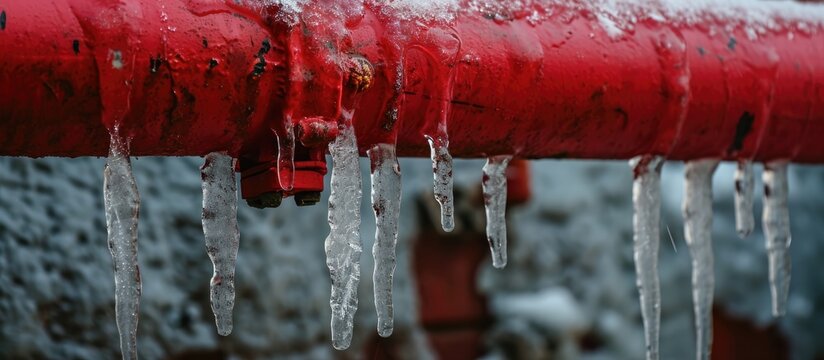Important Tips to Prevent Frozen Pipes in Winter
Important Tips to Prevent Frozen Pipes in Winter
Blog Article
The article author is making several good pointers on the subject of Winter Plumbing Precautions: Preventing Frozen Pipes in general in the content following next.

Winter can damage your plumbing, specifically by freezing pipes. Below's just how to stop it from happening and what to do if it does.
Introduction
As temperatures drop, the threat of frozen pipelines boosts, potentially resulting in expensive repair services and water damages. Understanding how to stop icy pipes is essential for property owners in cold environments.
Avoidance Tips
Insulating vulnerable pipes
Wrap pipelines in insulation sleeves or make use of heat tape to safeguard them from freezing temperature levels. Concentrate on pipelines in unheated or external areas of the home.
Heating techniques
Keep interior rooms properly heated up, particularly areas with plumbing. Open cabinet doors to allow warm air to circulate around pipes under sinks.
How to recognize frozen pipelines
Try to find reduced water flow from faucets, uncommon smells or noises from pipes, and noticeable frost on revealed pipelines.
Long-Term Solutions
Structural modifications
Think about rerouting pipes far from exterior walls or unheated locations. Add extra insulation to attic rooms, basements, and crawl spaces.
Updating insulation
Purchase premium insulation for pipes, attic rooms, and walls. Correct insulation assists maintain constant temperatures and minimizes the risk of icy pipes.
Protecting Outside Pipes
Garden tubes and outdoor taps
Disconnect and drain yard hoses before winter months. Install frost-proof spigots or cover outdoor faucets with shielded caps.
Understanding Frozen Pipelines
What causes pipes to ice up?
Pipelines ice up when exposed to temperatures below 32 ° F (0 ° C) for prolonged periods. As water inside the pipelines ices up, it expands, taxing the pipe walls and possibly causing them to break.
Threats and damages
Frozen pipes can cause water supply disruptions, home damages, and pricey repairs. Ruptured pipes can flooding homes and create considerable architectural damages.
Indications of Frozen Water Lines
Determining frozen pipelines early can avoid them from rupturing.
What to Do If Your Pipes Freeze
Immediate activities to take
If you presume frozen pipelines, maintain taps available to alleviate stress as the ice melts. Use a hairdryer or towels taken in hot water to thaw pipelines slowly.
Verdict
Stopping frozen pipelines needs proactive procedures and quick actions. By understanding the causes, indicators, and preventive measures, home owners can safeguard their pipes during cold weather.
Helpful Tips to Prevent Frozen Pipes this Winter
UNDERSTANDING THE BASICS: WHY PIPES FREEZE AND WHY IT’S A PROBLEM
Water freezing inside pipes is common during the winter months, but understanding why pipes freeze, and the potential problems it can cause is crucial in preventing such incidents. This section will delve into the basics of why pipes freeze and the associated problems that may arise.
THE SCIENCE BEHIND FROZEN PIPES
When water reaches freezing temperatures, it undergoes a physical transformation and solidifies into ice. This expansion of water as it freezes is the primary reason pipes can burst. As the water inside the pipe freezes, it expands, creating immense pressure on the walls. If the pressure becomes too great, the pipe can crack or rupture, leading to leaks and water damage.
FACTORS THAT CONTRIBUTE TO PIPE FREEZING
Low Temperatures: Extremely cold weather, especially below freezing, increases the risk of pipes freezing. Uninsulated or Poorly Insulated Pipes: Pipes located in unheated areas, such as basements, crawl spaces, or attics, are more prone to freezing. Insufficient insulation or lack of insulation altogether exacerbates the problem. Exterior Wall Exposure: Pipes running along exterior walls are susceptible to freezing as they encounter colder temperatures outside. Lack of Heating or Temperature Regulation: Inadequate heating or inconsistent temperature control in your home can contribute to frozen pipes. PROBLEMS CAUSED BY FROZEN PIPES
- Pipe Bursting: As mentioned earlier, the expansion of water as it freezes can cause pipes to burst, resulting in significant water damage.
- Water Damage: When pipes burst, it can lead to flooding and water damage to your property, including walls, ceilings, flooring, and personal belongings.
- Structural Damage: Prolonged exposure to water from burst pipes can compromise the structural integrity of your home, leading to costly repairs.
- Mold and Mildew Growth: Excess moisture from water damage can create a favorable environment for mold and mildew growth, posing health risks to occupants.
- Disrupted Water Supply: Frozen pipes can also result in a complete or partial loss of water supply until the issue is resolved.
WHY CERTAIN PIPES ARE MORE PRONE TO FREEZING
- Location: Pipes located in unheated or poorly insulated areas, such as basements, crawl spaces, attics, or exterior walls, are at higher risk of freezing.
- Exterior Pipes: Outdoor pipes, such as those used for irrigation or exposed plumbing, are particularly vulnerable to freezing as they are directly exposed to the elements.
- Supply Lines: Pipes that carry water from the main water supply into your home, including the main water line, are critical to protect as freezing in these lines can affect your entire plumbing system.
- Underground Pipes: Pipes buried underground, such as those connected to sprinkler systems or outdoor faucets, can be susceptible to freezing if not properly insulated.
https://busybusy.com/blog/helpful-tips-to-prevent-frozen-pipes-this-winter/

I'm very drawn to How to prepare your home plumbing for winter weather and I really hope you liked my blog entry. Enjoyed our blog? Please share it. Let others find it. Bless you for being here. Please visit our blog back soon.
Recurring Service Plans Report this page